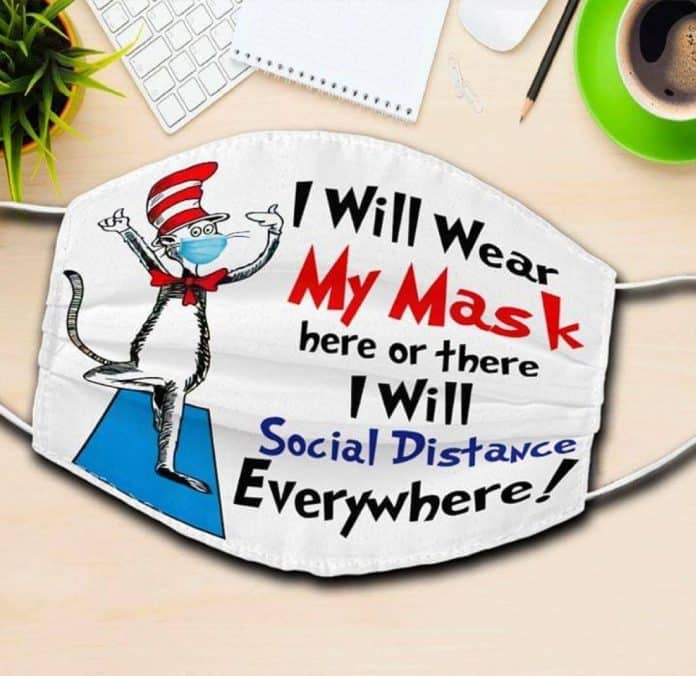Face masks will become compulsory for bar staff, shop workers, waiters and taxi drivers in an effort to combat the rise in coronavirus cases in England, the prime minister has announced.
Fines for failing to wear a face mask will rise to £200 and will be extended to customers when they are not seated at a table, Boris Johnson told MPs.
Announcing the new coronavirus restrictions, the PM said the UK has reached a “perilous turning point” in its fight against COVID-19 and must “act now to avoid still graver consequences later on”.
He also warned that the measures could remain in place for as long as six months.
The restrictions announced by the PM are as follows:
- Office workers should work from home again where possible – although workers in “key public services and in all professions where home working is not possible”, such as construction and retail, should continue to go in
- From Thursday, all pubs, bars and restaurants must be table service only and close at 10pm – but delivery services can remain open
- The requirement to wear a face covering has been extended to staff in retail, people in taxis and everyone using hospitality services
- Fines for not wearing a face covering will now double to £200 for a first offence
- Only 15 people can now attend weddings but 30 can go to a funeral
- The rule of six has been extended to indoor sports teams
- Phased reopening of stadiums for sports clubs has been cancelled
The PM has stopped short – for now – of introducing more wide-ranging measures to try and halt the rise incases.
He acknowledged this in his Commons address, telling MPs: “I want to stress that this is by no means a return to the full lockdown of March. We’re not issuing a general instruction to stay at home.
“We will ensure that schools, colleges, universities stay open because nothing is more important than the education, health and well-being of our young people.
“We will ensure businesses can stay open in a COVID-compliant way. However we must take action to suppress the disease.”
It had been suggested that proposals being worked on by Downing Street could have seen essential travel to schools and workplaces continuing, with restaurants and bars shut.
There was also speculation that Number 10 would ban different households from mixing.
The devolved administrations in Scotland, Wales and Northern Ireland are able to take their own measures in the fight against coronavirus.
Scottish First Minister Nicola Sturgeon is due to announce further restrictions shortly, while people in Northern Ireland have already been banned from mixing with other households indoors.
In Wales, around a third of the population are currently under a form of local lockdown.
Boris Johnson will address the nation from Downing Street later about the new restrictions and the UK’s fight against the virus.
It comes after the alert level was raised from three to four, meaning there is now a high or rising level of transmission.
The government’s chief scientific adviser has warned that the UK could see 49,000 new cases every day within weeks unless action is taken to drive down the rate of infection.
This would translate to “200-plus deaths a day” by mid-November, Sir Patrick Vallance said.
Mr Johnson has said he does not want to put the country into a second national lockdown and will be hoping the latest measures are enough to turn the tide.
But despite there being no national lockdown like the one seen in March, some 13.5 million people across the UK are currently living under some form of local restrictions.
Labour leader Sir Keir Starmer earlier said that a second national shutdown would be a “government failure – not an act of god”.







